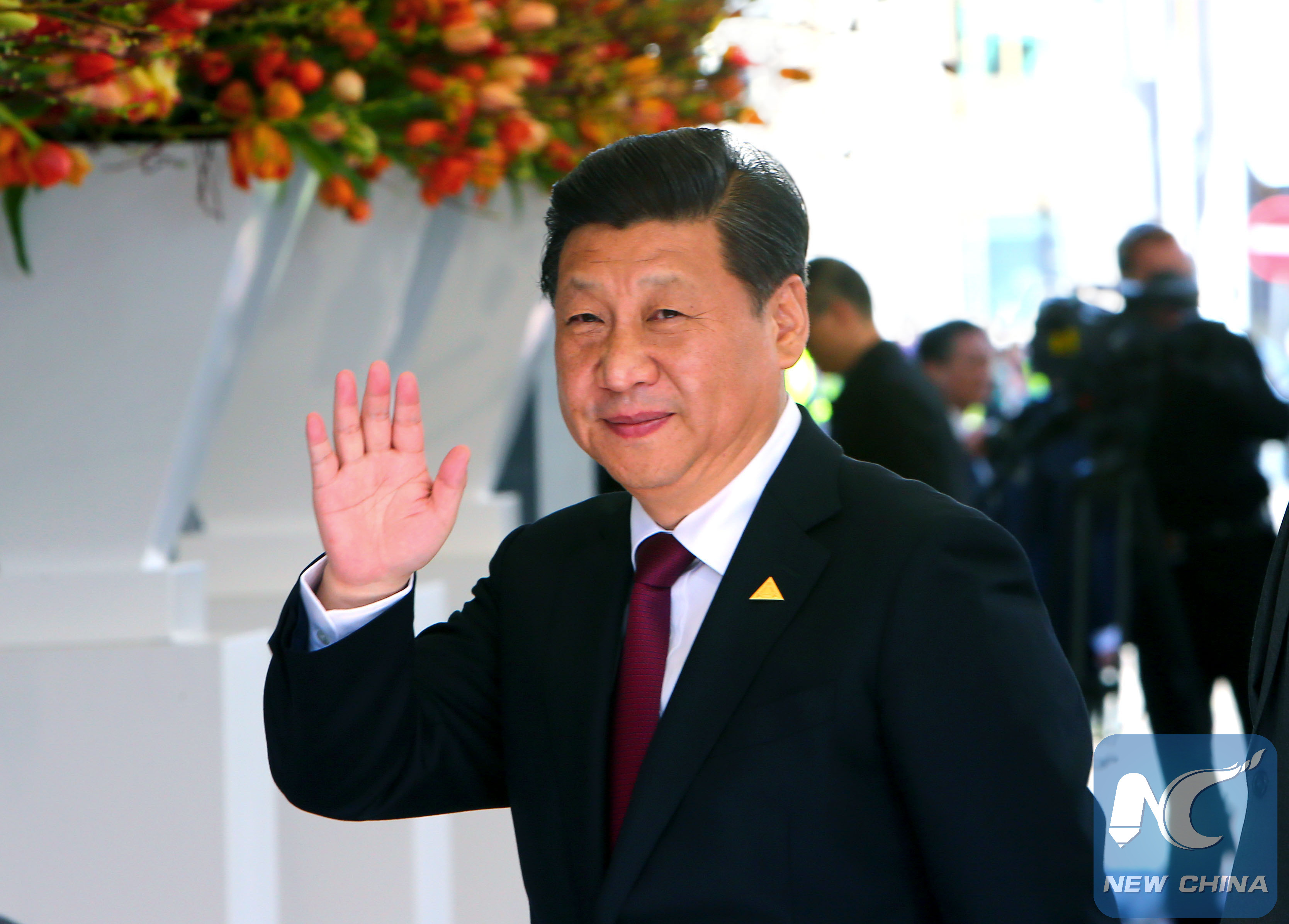
Chinese President Xi Jinping arrives for the third Nuclear Security Summit in The Hague, the Netherlands, March 24, 2014. (Xinhua/Gong Bing)
BEIJING, Jan. 13 (Xinhua) -- After he took office in March 2013, Chinese President Xi Jinping has attached great importance to the relationship between China and Europe, with five visits having been paid to the region.
During Mar. 22 to Apr. 1, 2014, Xi embarked on a journey of foreign visits, including attending the Third Nuclear Security Summit and state visits to the Netherlands, France, Belgium and Germany.
At the Third Nuclear Security Summit held on Mar. 24, Xi elaborated on China's approach to nuclear security, urging global cooperation for nuclear energy's lasting security and development.
He stressed the importance of placing "equal emphasis" on development and security, warning that developing nuclear energy at the expense of security can neither be sustainable nor bring real development.
In the Netherlands, Xi met with his Dutch counterpart Mark Rutte. The two leaders exchanged in-depth views on bilateral and China-EU relations, and decided to build an open and pragmatic partnership for comprehensive cooperation between the two countries.
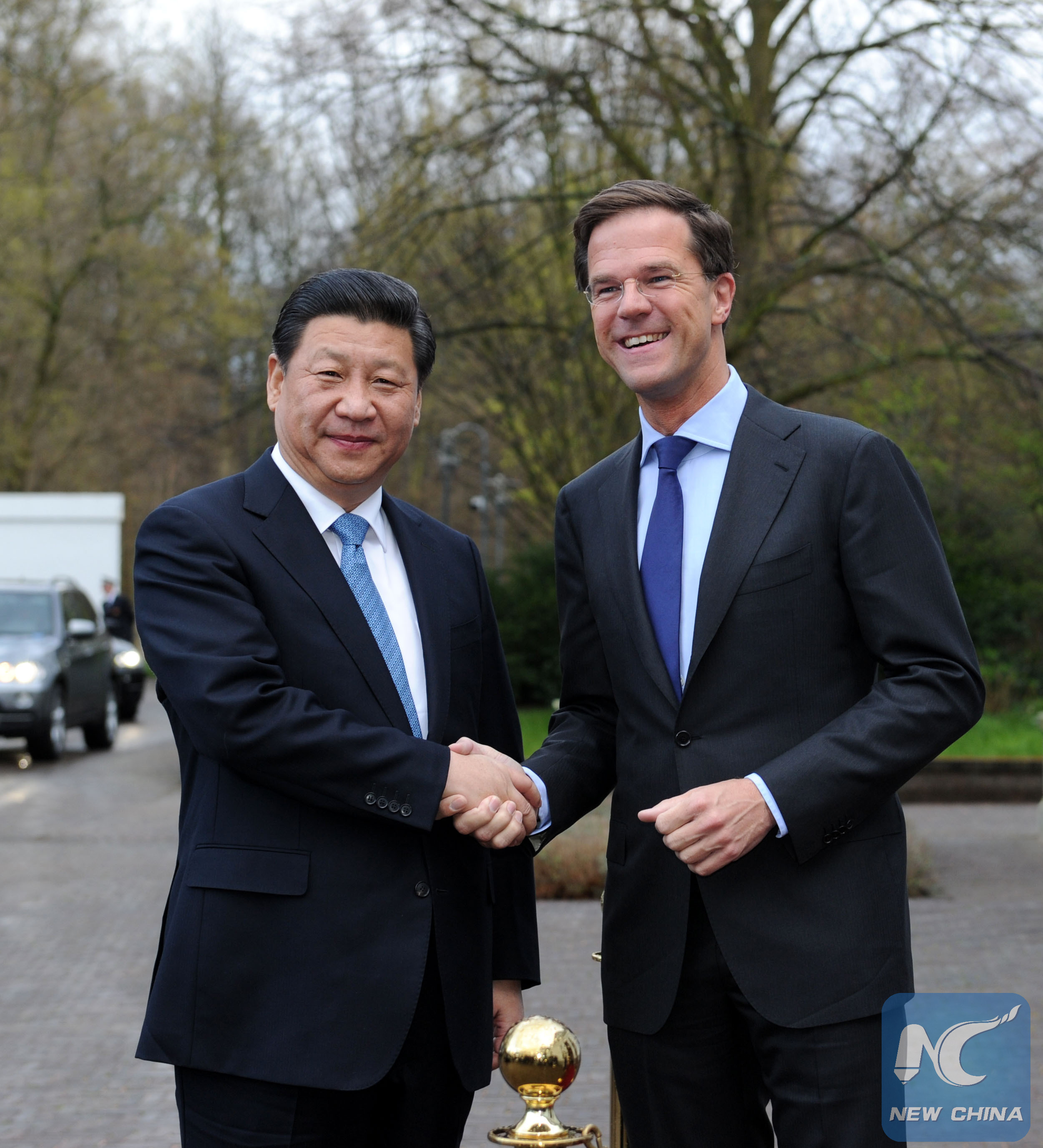
Chinese President Xi Jinping (L) shakes hands with Dutch Prime Minister Mark Rutte ahead of their talks, in The Hague, the Netherlands, March 23, 2014. (Xinhua/Rao Aimin)
In France, Xi and his French counterpart, Francois Hollande, pledged to open up a new chapter in bilateral ties at a gathering marking the 50th anniversary of the establishment of diplomatic relations between China and France.
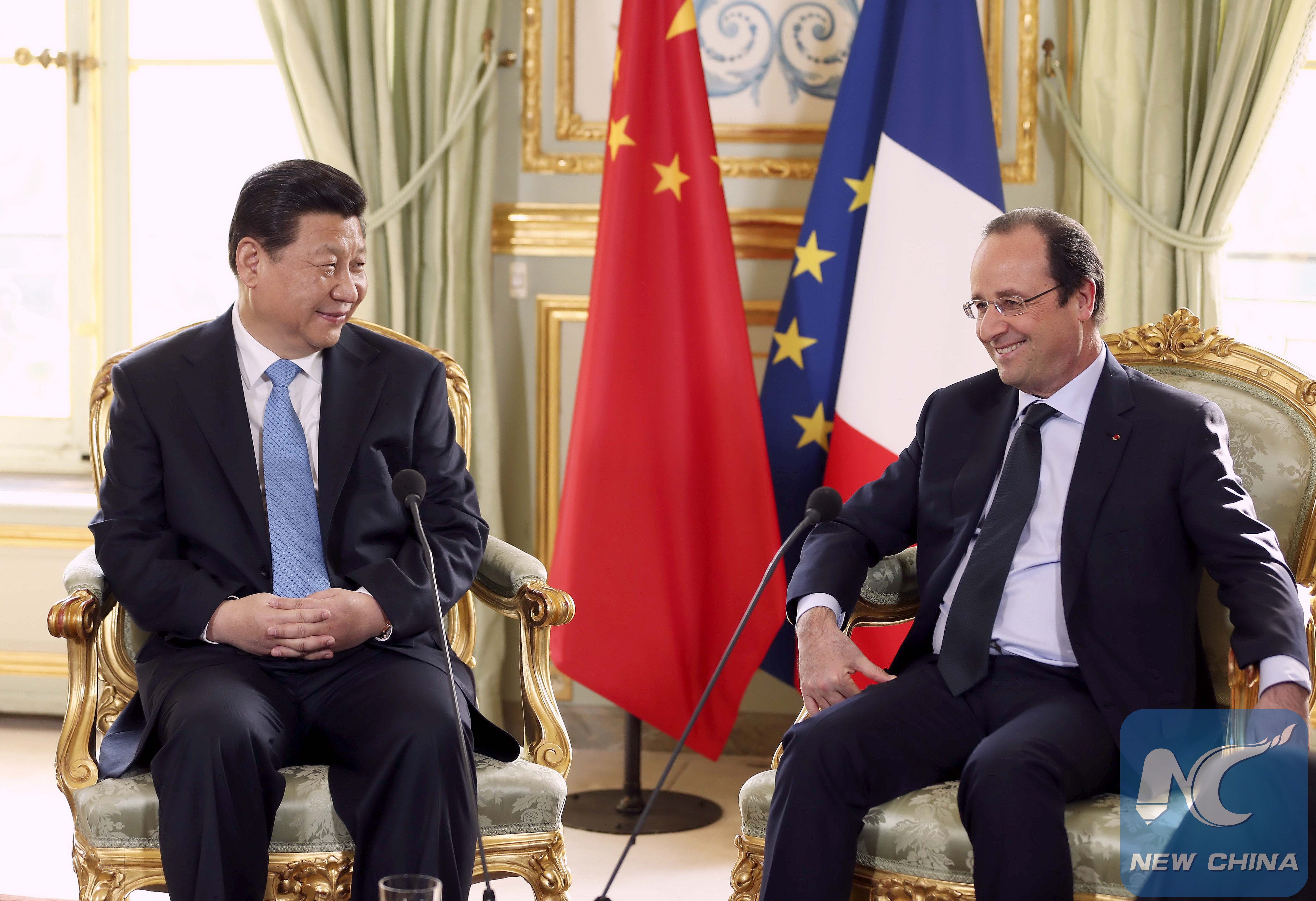
Chinese President Xi Jinping (L) meets with his French counterpart Francois Hollande in Paris, capital of France, March 26, 2014. (Xinhua/Lan Hongguang)
In Germany, Xi met with his German counterpart Angela Merkel and decided to lift the bilateral relations to a comprehensive strategic partnership.
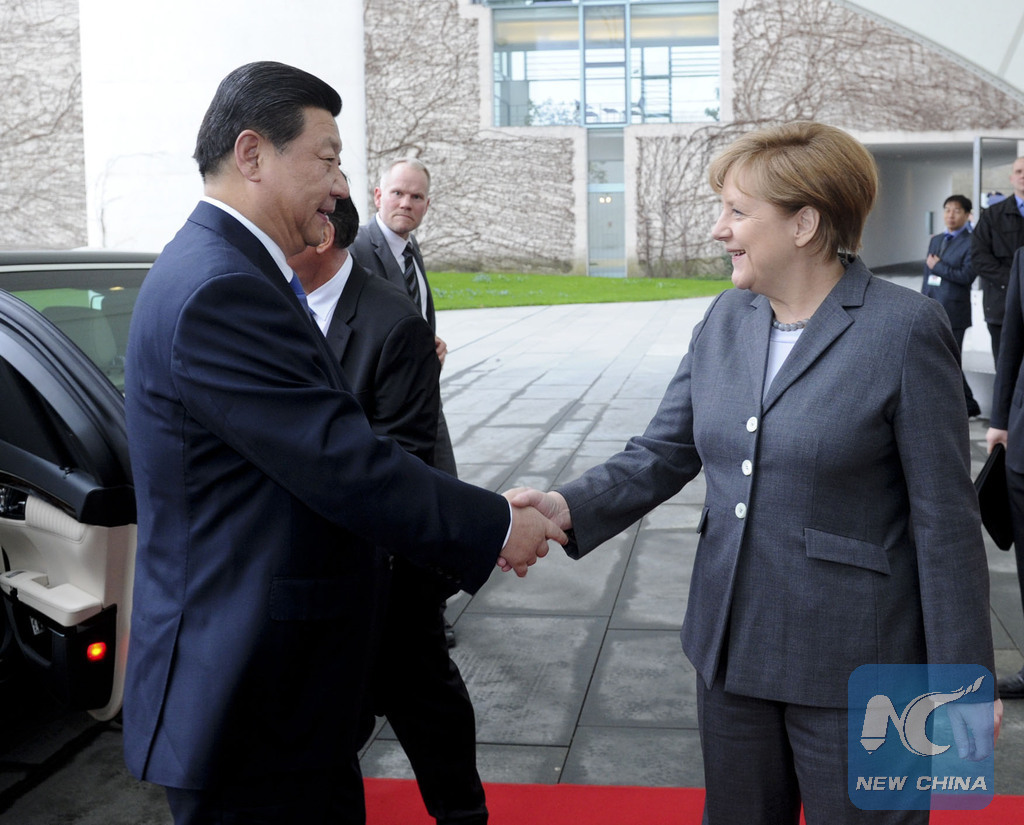
Chinese President Xi Jinping (L) holds talks with German Chancellor Angela Merkel in Berlin, Germany, March 28, 2014. (Xinhua/Zhang Duo)
During Xi' s state visit to Belgium, the two countries pledged to deepen their all-round partnership of friendship and cooperation and identified some key areas for short- and mid-term cooperation, such as students and scientific research personnel exchanges, education, economy, technology, agricultural products processing and so on.
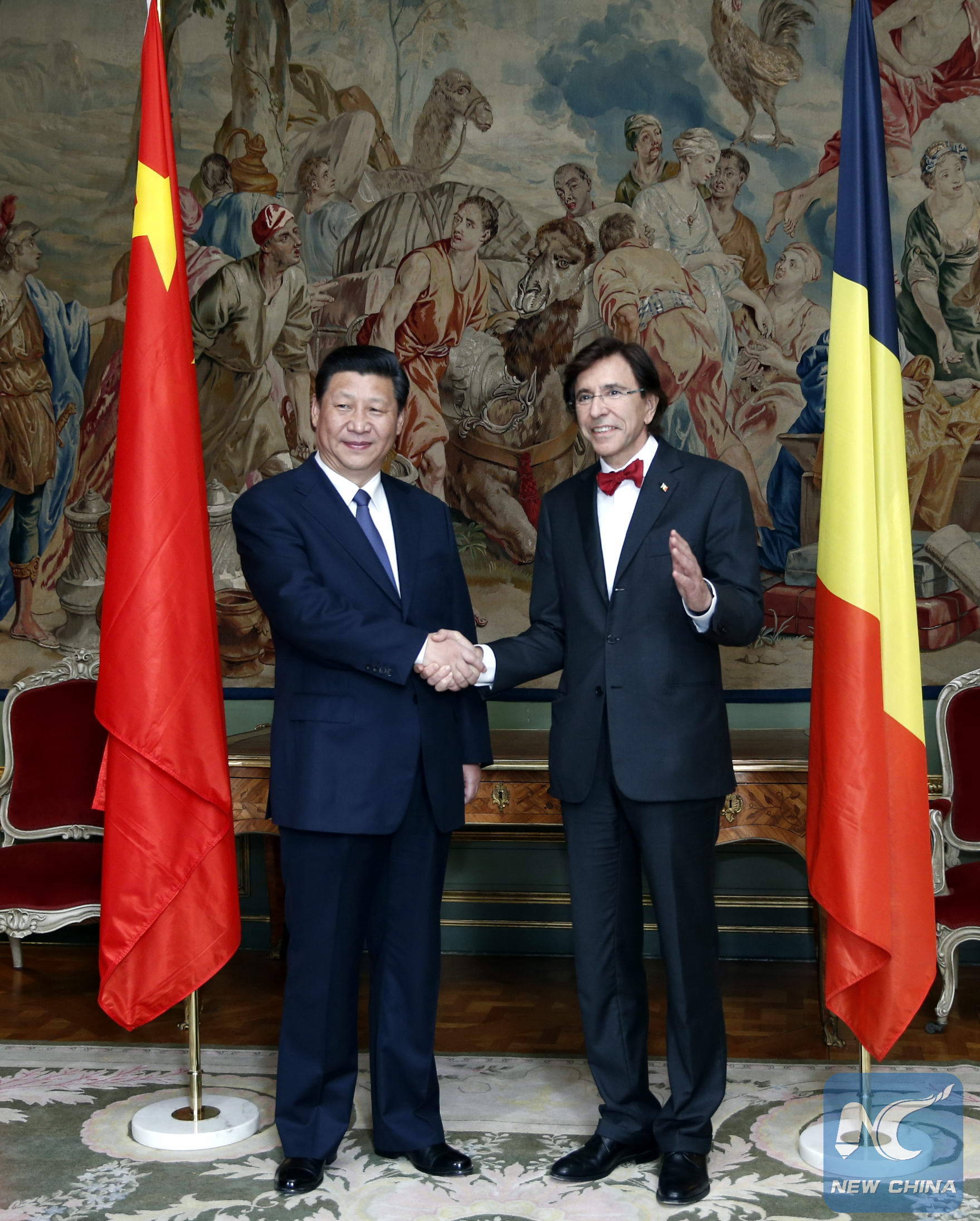
Chinese President Xi Jinping (L) holds talks with Belgian Prime Minister Elio Di Rupo in Brussels, Belgium, March 31, 2014. (Xinhua/Ju Peng)
On Oct. 19-23, 2015, Xi paid a state visit to Britain, in which he talked with his British counterpart David Cameron at 10 Downing Street and decided to lift the China-Britain relationship to a "global comprehensive strategic partnership for the 21st century."
The two leaders also witnessed the signing of a string of deals, which totalled almost 40 billion pounds (some 62 billion U.S. Dollars), including the landmark agreement on building the Hinkley Point nuclear power station.
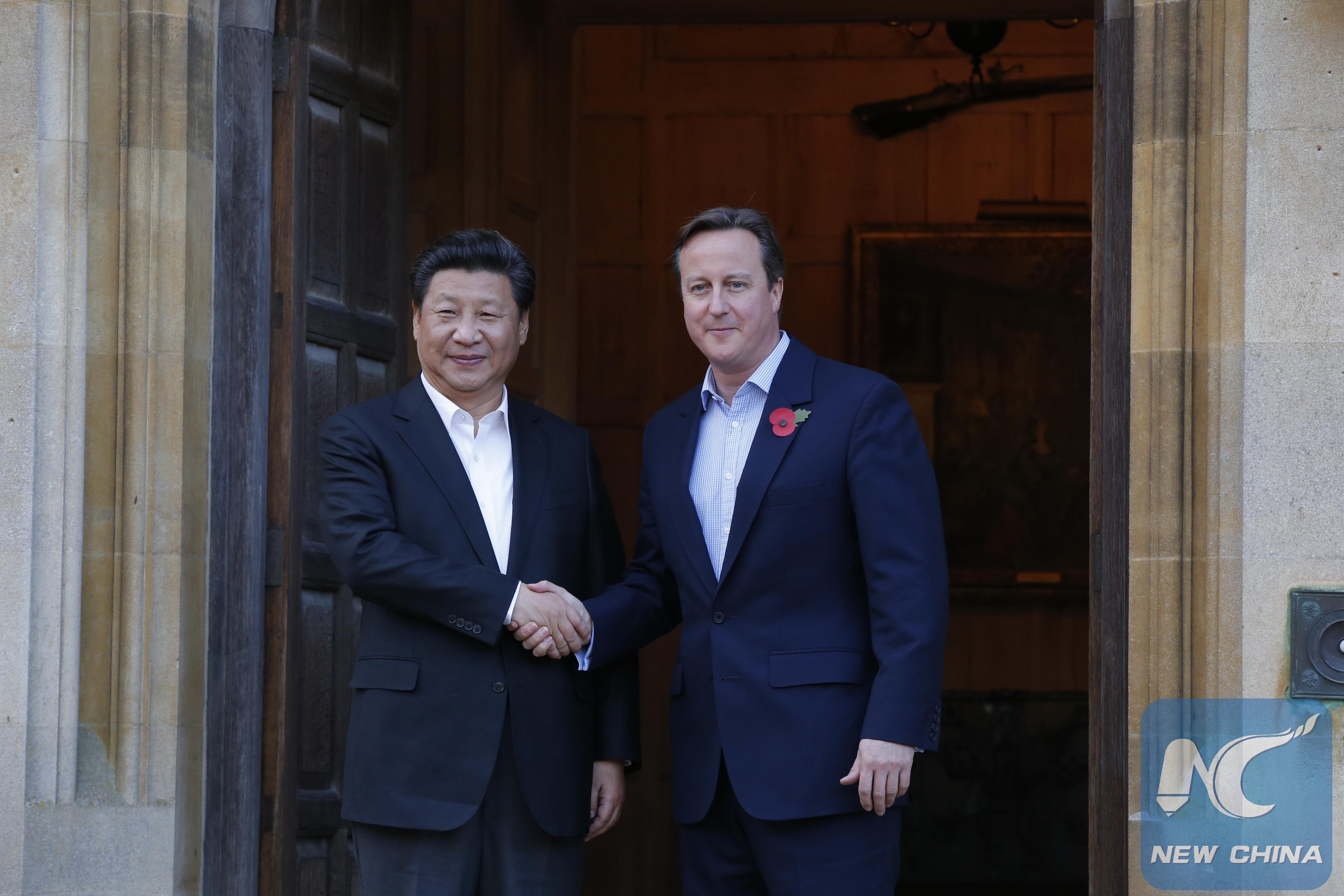
Chinese President Xi Jinping (L) meets with British Prime Minister David Cameron at the latter's country retreat, Chequers, Britain, Oct. 22, 2015. (Xinhua/Ju Peng)
Both sides vowed to cooperate on each other's major initiatives -- China's Belt and Road Initiative and Britain's National Infrastructure Plan and Northern Powerhouse.
Some new areas of cooperation were also established with China's central bank issuing 5-billion yuan-denominated notes in London, in the first offshore issuance of such debts outside China.
A high-level security dialogue to strengthen cooperation on issues including cyber crime was also established.
On Nov. 29-30, 2015, Xi attended the two-week Paris gathering, officially called the 21st Conference of the Parties to the United Nations Framework Convention on Climate Change, and gave a speech at the opening ceremony in which he elaborated on China' s stance on climate change.
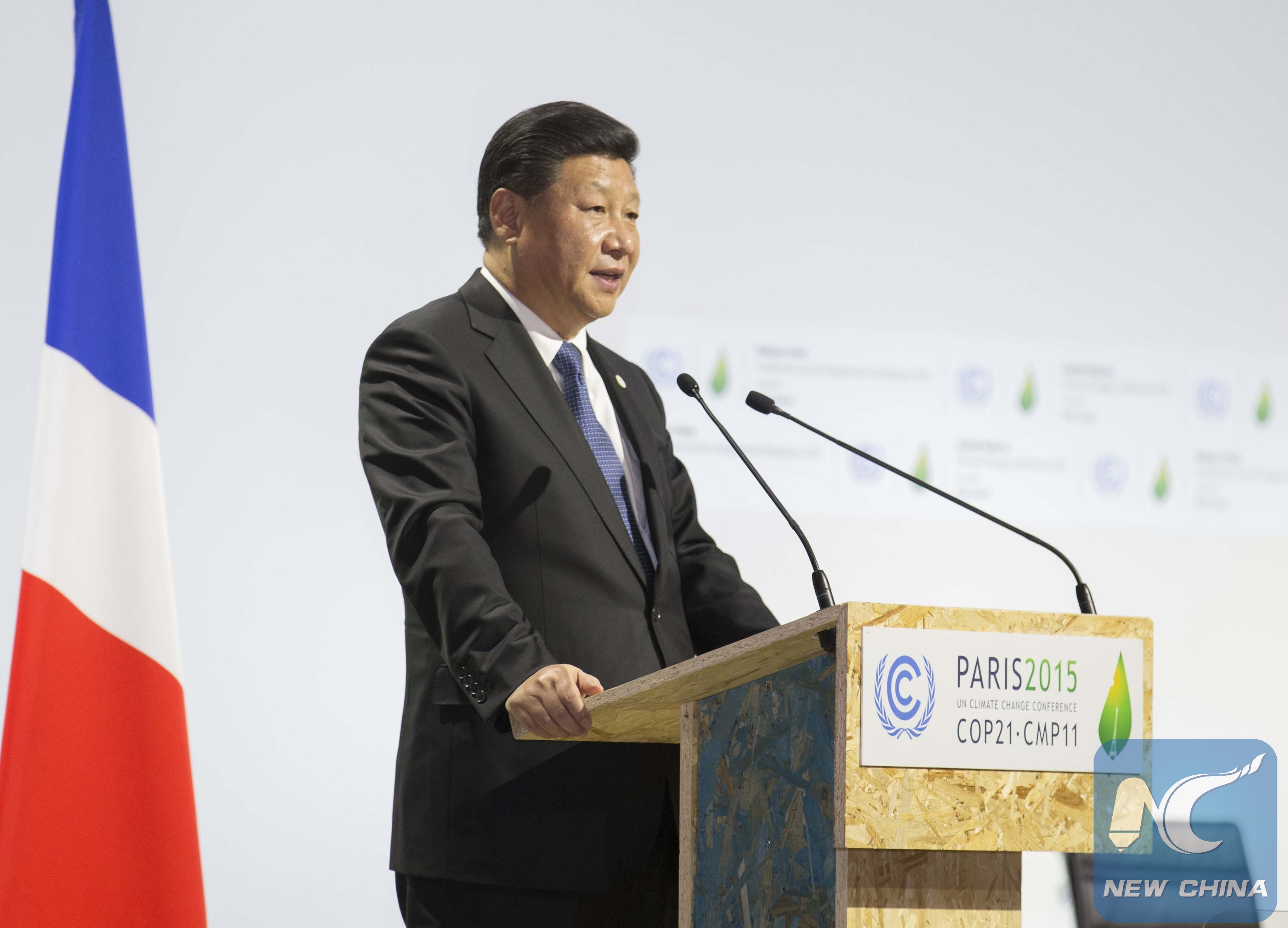
Chinese President Xi Jinping delivers a speech at the opening ceremony of the United Nations (UN) climate change conference in Paris, France, Nov. 30, 2015. (Xinhua/Huang Jingwen)
Xi reiterated the principle of "common but differentiated responsibilities," a cornerstone laid by the UN Framework Convention on Climate Change (UNFCCC) in 1992, adding that it must be adhered to during the upcoming climate negotiations, and warned against the mentality of zero-sum game and expressed resolve in fulfilling Beijing's commitments and showing willingness to advance international cooperation.
Xi paid a state visit to the Czech Republic on Mar. 28-30, 2016, during which he held talks with his Czech counterpart Milos Zeman and decided to forge a strategic partnership, ushering the bilateral ties into a new era of seeking more common interests and deeper cooperation.

Chinese President Xi Jinping (L) meets with Czech Prime Minister Bohuslav Sobotka in Prague, the Czech Republic, March 29, 2016. (Xinhua/Ju Peng)
The two leaders also agreed to enhance production capacity cooperation in manufacturing industry such as machinery, automobile and aviation, deepen cooperation in such fields as finance, nuclear energy, air transportation and industrial park to establish all-dimensional connectivity, and push forward innovation cooperation in emerging fields such as e-commerce, communication, artificial intelligence industry, nanotechnology and environment protection.
On Jun. 17, 2016, Xi arrived in Belgrade and started his state visit to Serbia. During the visit, Xi met with Serbian President Tomislav Nikolic and signed a joint statement to lift the bilateral ties to a comprehensive strategic partnership on the basis of their strategic partnership established in 2009.
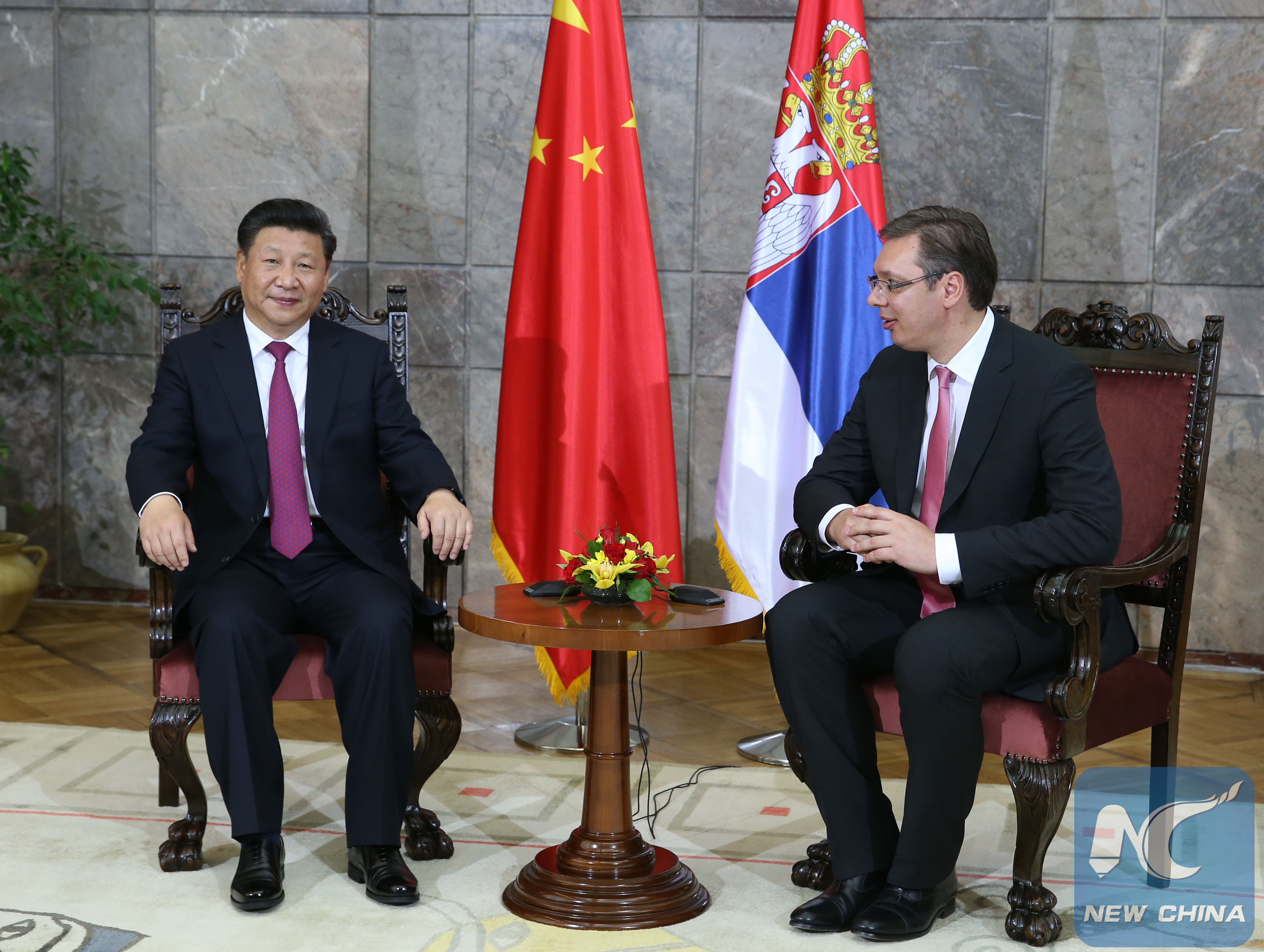
Chinese President Xi Jinping (L) meets with Serbian Prime Minister Aleksandar Vucic in Belgrade, Serbia, June 18, 2016. (Xinhua/Ma Zhancheng)
In the statement, the two countries agreed to elevate their practical cooperation in various fields including aligning development strategies, infrastructure, industrial capacity, investment, finance, culture, education, healthcare, science and technology.
The two leaders also witnessed the signing of a series of cooperation deals, covering industrial capacity, finance, infrastructure construction, trade, energy, telecommunications, science, technology, local affairs, culture and tourism.
On Jun. 20, 2016, Xi started his state visit to Poland, during which he met with his Polish counterpart, Andrzej Duda. The two leaders agreed to upgrade the China-Poland ties to a comprehensive strategic partnership during his state visit to the country.
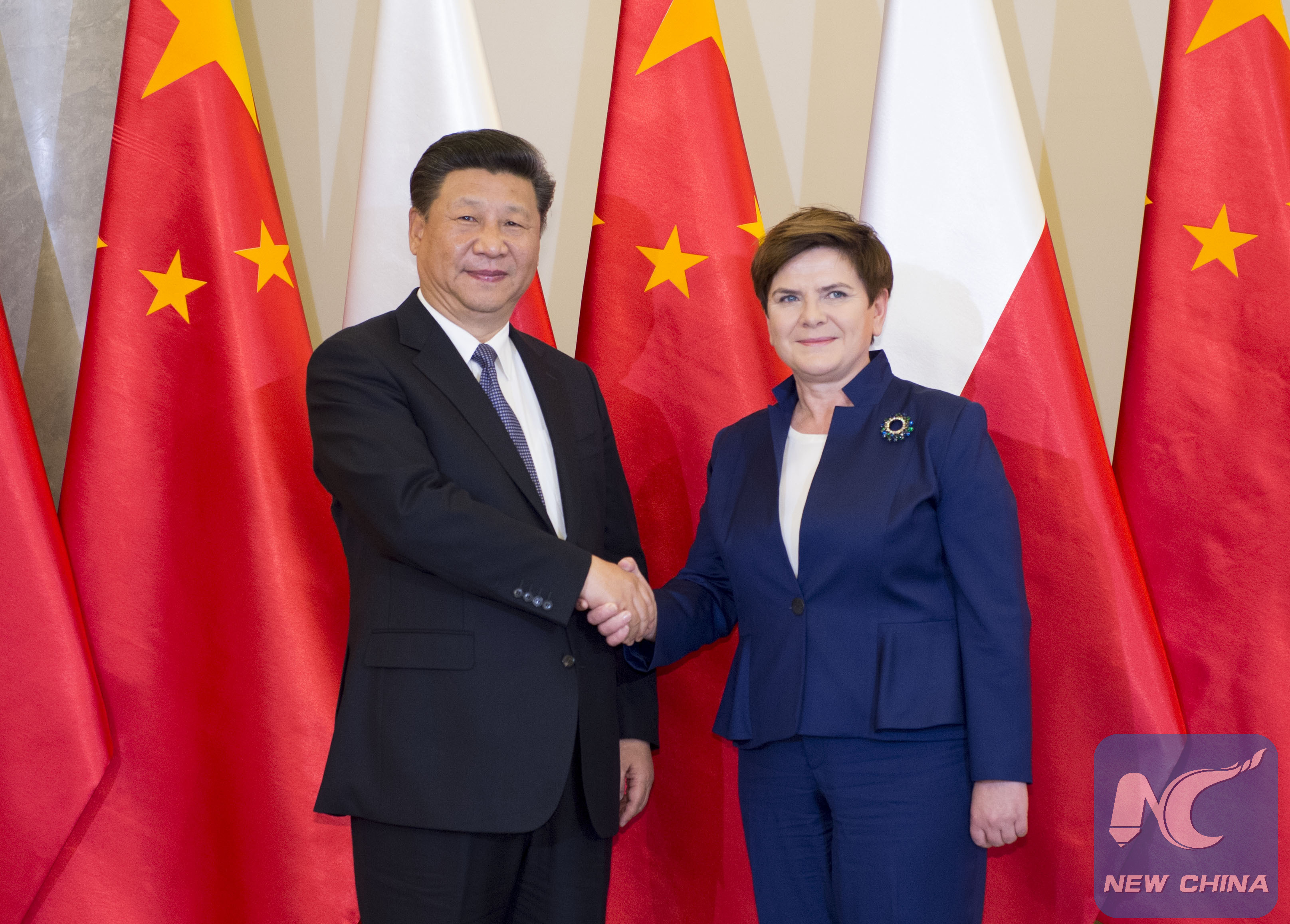
Chinese President Xi Jinping (L) meets with Polish Prime Minister Beata Szydlo in Warsaw, Poland, June 20, 2016. (Xinhua/Xie Huanchi)
The two presidents agreed to expand high-level exchanges, as well as exchanges between legislative and administrative institutions, political parties and regions, and to enhance coordination in international affairs and within multilateral mechanisms such as the United Nations and the Asia-Europe Meeting.
The two leaders also agreed to promote the development of the Belt and Road Initiative, and launch at an early date some major cooperation projects with exemplary significance for early harvest.

